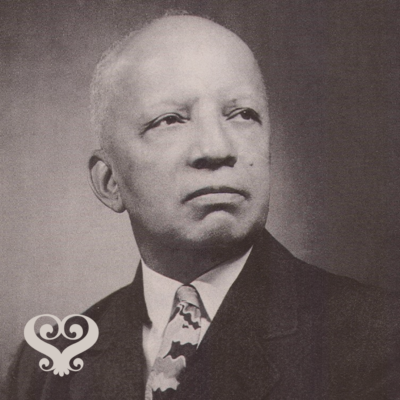“For me, education means to inspire people to live more abundantly, to learn to begin with life as they find it and make it better.”
Carter G. Woodson
Born in 1875 to formerly enslaved parents, Carter G. Woodson was a historian and author. During his early life Woodson worked on his family’s farm and later in the West Virginia coal mines to help support his family. His tenacity for learning would prove to be strong as he was self- taught in the common school subjects. He entered high school at the age of 20, and by 22 he had earned his diploma.
He would go on to earn his first bachelor’s degree from Berea College, and his second bachelor’s degree and master’s degree from the University of Chicago. Later he would earn his Ph.D from Harvard University, following in the footsteps of W.E.B DuBois as the second Black person to graduate with an Ph.D from the institution.
In his professional life, Woodson saw his white counterparts disregarding, overlooking, and suppressing the contributions of Black people on American history. From his dismay came the first semblances of what would become Black History Month. In 1924, through his college fraternity, Omega Psi Phi, Woodson introduced the Negro History and Literature Week, planned for a week in February to commemorate the birthdays of two important figures in Black history: Frederick Douglass, and Abraham Lincoln.
This week would expand to encompass the entire month of February. 26 years after Carter G. Woodson’s death, in 1976, President Ford would recognize Black History Month as an official observation for the contributions made by Black people during American history.
Sankofa Impact is proud to uplift Black history year-round. We continue in our commitment to uncover, preserve, and celebrate the impact that Black people have made on our society.

